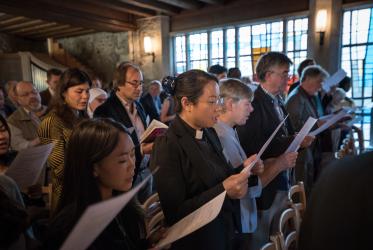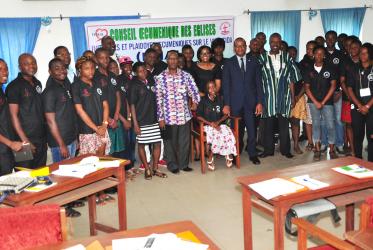Togo
The region of today's Togo was settled by various groups, among them the Ewé who came from the east, and the Mina from the west. Togoland became a German colony at the 1884 Berlin Conference, and after World War I was divided between the British and the French. British Togoland joined Ghana at independence, and the French colony became Togo in 1962. A year later, Togo was the first African independent nation to experience a military coup. From 1967 to 2005 it was ruled by president Eyadéma, who imposed an authoritarian regime, oppressing the democratic opposition and violating human rights. Many Togolese were killed, and hundreds of thousands became refugees in neighbouring Ghana and Benin. At his death, his son took over in elections marred by killings and torture, and democratization continued to be blocked by those in power through 2005. The economy of Togo depends on subsistence agriculture and export of coffee, cocoa and cotton, and on the production of phosphate. Catholic missions began in Togo at the end of the 16th century, and today more than half of the Togolese Christians belong to the Catholic Church. The Evangelical Presbyterian church is the largest Protestant denomination, followed by the Assemblies of God (Pentecostal). Both are members of the Christian Council of Togo, which brings together a broad range of Protestant, Pentecostal and Evangelical churches. Several church leaders, Catholic and Protestant, have witnessed to democracy and justice in the tense internal political situation, with the support of international ecumenical partners.


